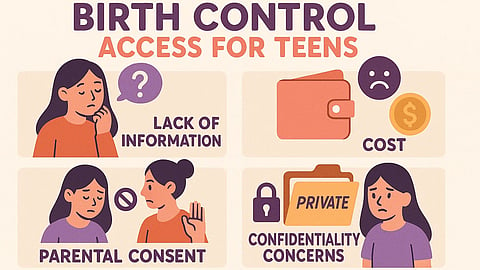According to global reports from the W.H.O., nearly 1 in 10 girls aged 15–19 in low and middle-income countries become pregnant each year, with almost half of the pregnancies unplanned and ending in abortions.[1]
This issue is particularly concerning because adolescent mothers are at higher risk for several complications and diseases like sexual transmitted infections, eclampsia, uterine wall infection, and systemic infections.
To reduce this public health concern and keep the teenagers safe, strategies are aimed at the prevention of adolescent pregnancy and childbearing by encouraging safer sex practices, the use of contraceptives, and abstinence.
With the use of contraceptives as the best preventive option.
Despite these efforts, adolescents in both high, middle, and low-income countries still face barriers to access to birth control due to:[2]
Policies and laws are restraints in some countries based on age and marital status
Teens not wanting to use birth control due to fear and stigma
Lack of available services
Poor knowledge of sex education and best practices
Family values


